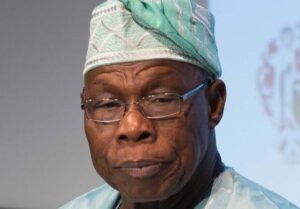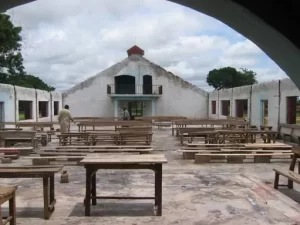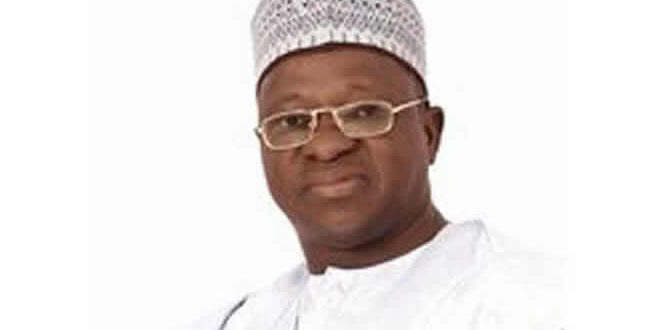In May 2004, Nigeria’s Plateau State was placed under a state of emergency by then-President Olusegun Obasanjo. This decisive action was taken in response to escalating inter-communal violence that had resulted in significant loss of life and property. The declaration aimed to restore peace and stability in a region marred by ethno-religious conflicts.

Background of the Crisis
Plateau State, located in Nigeria’s Middle Belt, has historically been a melting pot of diverse ethnic and religious groups. This diversity, while enriching, has also been a source of tension, particularly between the predominantly Christian indigenous communities and the Muslim settler populations, including the Hausa-Fulani. Disputes over land ownership, political representation, and resource control have often exacerbated these tensions.
The immediate catalyst for the state of emergency was the massacre in Yelwa, a town in the Shendam Local Government Area. In early May 2004, violent clashes erupted, leading to the deaths of over 600 individuals, predominantly Muslims. This incident was part of a series of retaliatory attacks between Christian and Muslim communities that had been occurring since 2001, resulting in approximately 2,000 fatalities.

Government’s Response
Confronted with the deteriorating security situation, President Obasanjo invoked Section 305 of the 1999 Nigerian Constitution, which grants the President authority to declare a state of emergency in any part of the country facing significant threats to public order and safety. On May 18, 2004, he announced the state of emergency in Plateau State, leading to the suspension of the elected Governor Joshua Dariye and the State House of Assembly. This measure was intended to facilitate swift and effective intervention to halt the violence and prevent its spread to neighboring regions.
Appointment of an Interim Administrator
To administer the state during the emergency period, President Obasanjo appointed Major General Chris Alli (retired) as the Sole Administrator. General Alli, a native of Plateau State, was entrusted with the responsibility of restoring law and order, promoting reconciliation among warring factions, and implementing measures to address the root causes of the conflict. His military background and understanding of the local context were considered assets in managing the crisis.
Reactions to the Declaration
The declaration of the state of emergency elicited mixed reactions from various stakeholders:
-
Federal Government’s Stance: The central government justified the action as a necessary step to prevent further bloodshed and maintain national unity. President Obasanjo emphasized that the state government had failed to effectively address the escalating violence, necessitating federal intervention.
-
State Government’s Perspective: Supporters of the suspended Governor Joshua Dariye viewed the intervention as an overreach of federal power and a threat to democratic principles. They argued that the suspension undermined the mandate given to the elected officials by the people of Plateau State.
-
Civil Society and Legal Experts: Opinions were divided. Some legal scholars contended that the declaration was constitutional, citing the President’s powers under Section 305. Others believed it set a concerning precedent for federal interference in state matters, potentially destabilizing Nigeria’s federal structure.
Impact of the State of Emergency
The imposition of the state of emergency led to several immediate and long-term outcomes:
-
Restoration of Order: The presence of federal troops and the enforcement of curfews contributed to a significant reduction in violent incidents. The interim administration facilitated dialogue between conflicting communities, leading to temporary peace accords.
-
Humanitarian Response: The National Emergency Management Agency (NEMA) and other humanitarian organizations provided relief materials to displaced persons. Efforts were made to rehabilitate affected communities and rebuild destroyed infrastructure.
-
Political Implications: The suspension of democratic institutions in the state sparked debates about the balance of power between federal and state governments. While some viewed the intervention as necessary, others feared it could be misused in the future to suppress political opposition.
Lessons Learned and Subsequent Developments
The Plateau State crisis and the subsequent state of emergency highlighted several critical issues:
-
Need for Early Intervention: The protracted nature of the conflict underscored the importance of timely and proactive measures by both state and federal authorities to address underlying tensions before they escalate.
-
Strengthening Local Governance: The crisis revealed weaknesses in local governance structures and the need for capacity building to manage diversity and prevent conflicts.
-
Legal and Constitutional Reforms: The debates arising from the state of emergency emphasized the necessity for clear guidelines on the invocation of emergency powers to prevent potential abuses and protect democratic institutions.
In the years following the state of emergency, Plateau State has made strides toward peace and reconciliation. Various initiatives have been implemented to promote inter-communal dialogue, economic development, and social cohesion. However, occasional flare-ups of violence indicate that the underlying issues require continuous attention and sustained efforts from all stakeholders.
Conclusion
The 2004 declaration of a state of emergency in Plateau State was a significant event in Nigeria’s recent history, reflecting the complexities of managing ethno-religious conflicts within a federal system. While the intervention succeeded in curbing immediate violence, it also raised important questions about governance, constitutional authority, and conflict resolution. The experience underscores the need for comprehensive strategies that address both the symptoms and root causes of communal conflicts to ensure lasting peace and stability.
